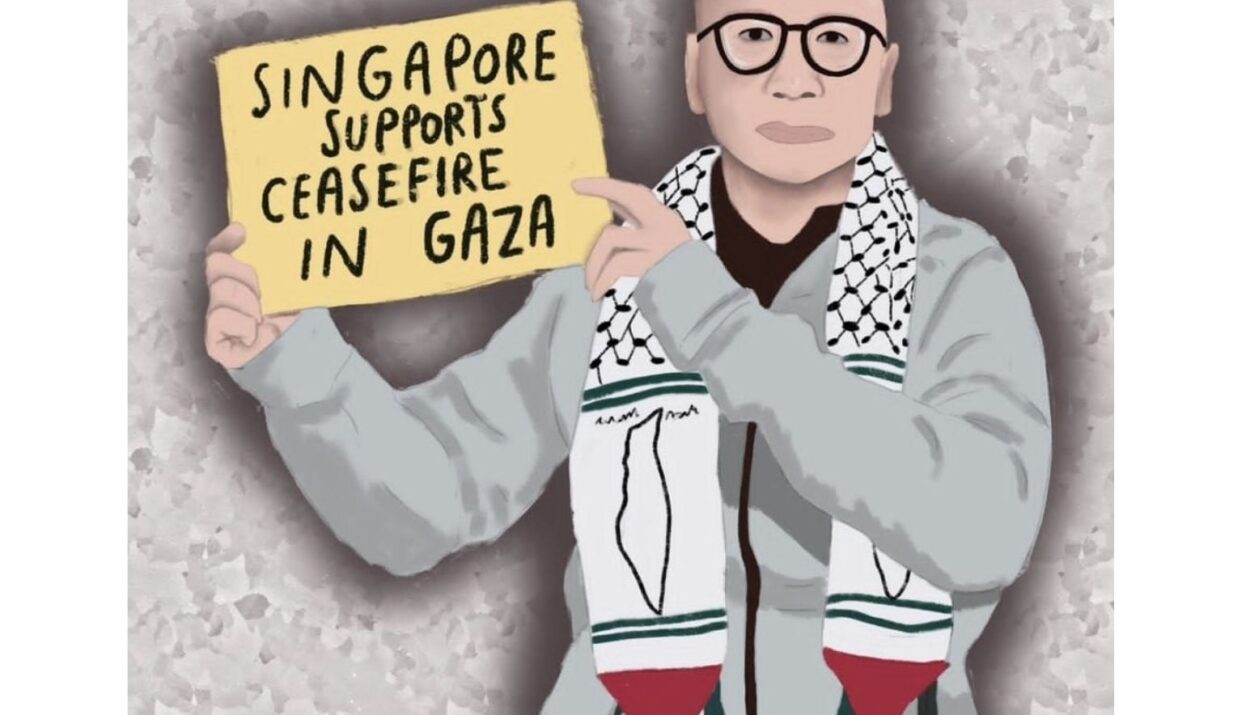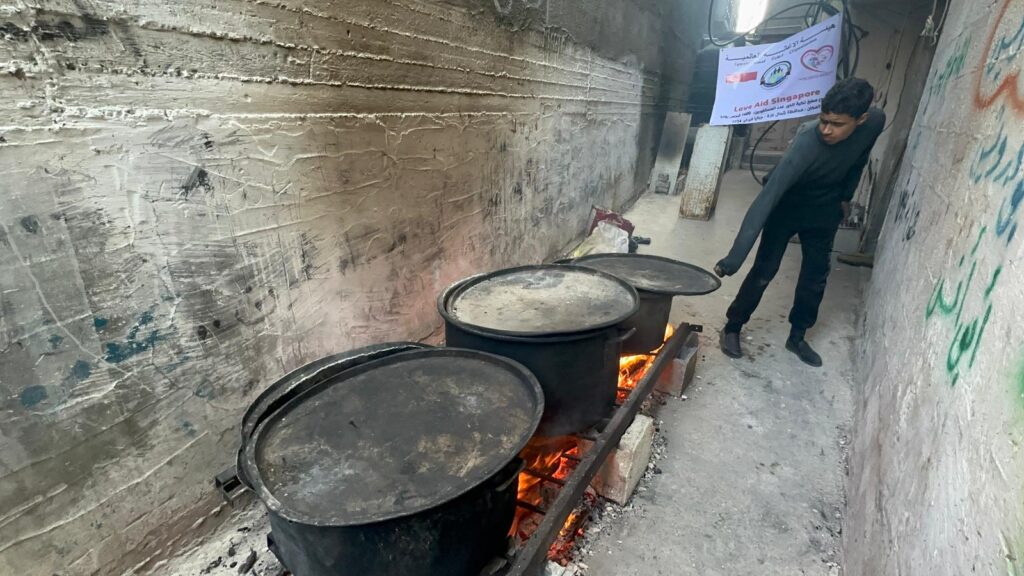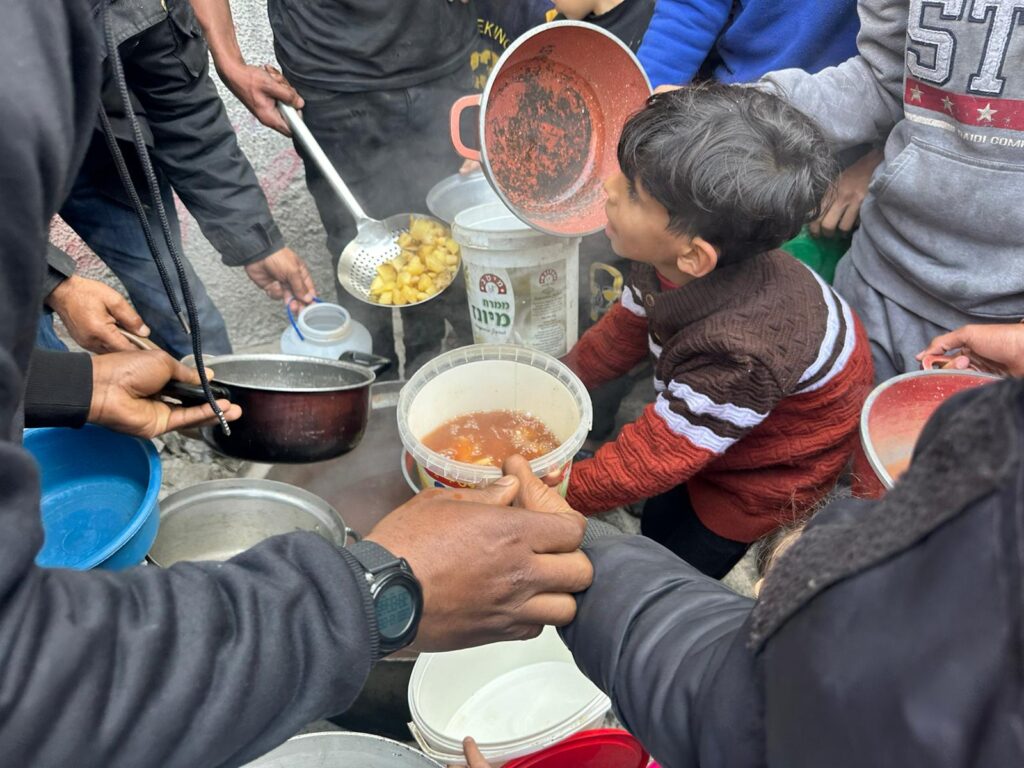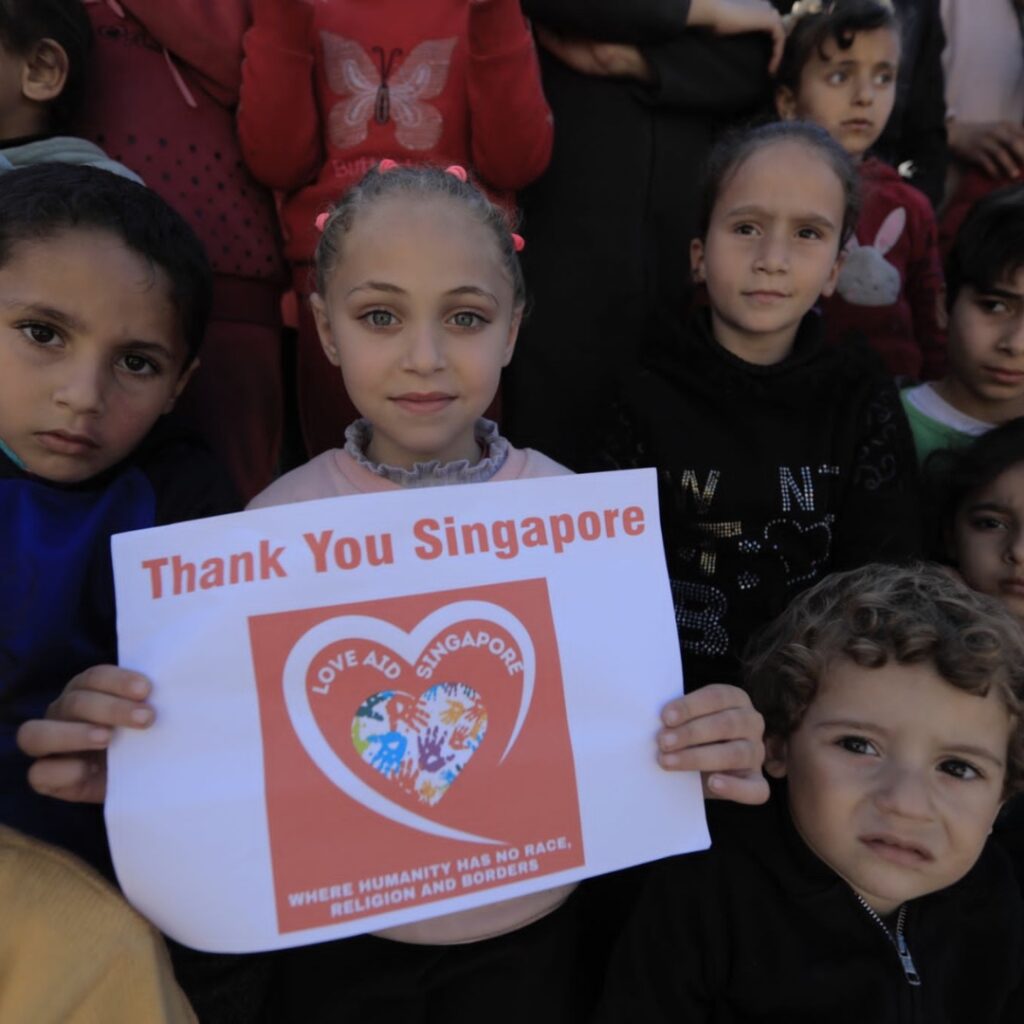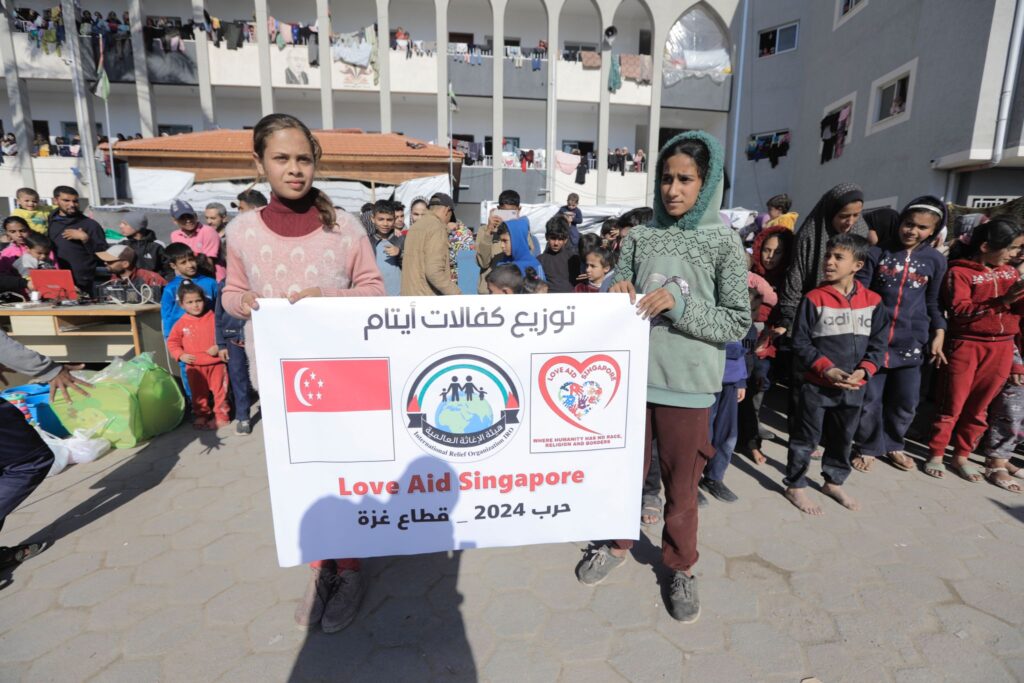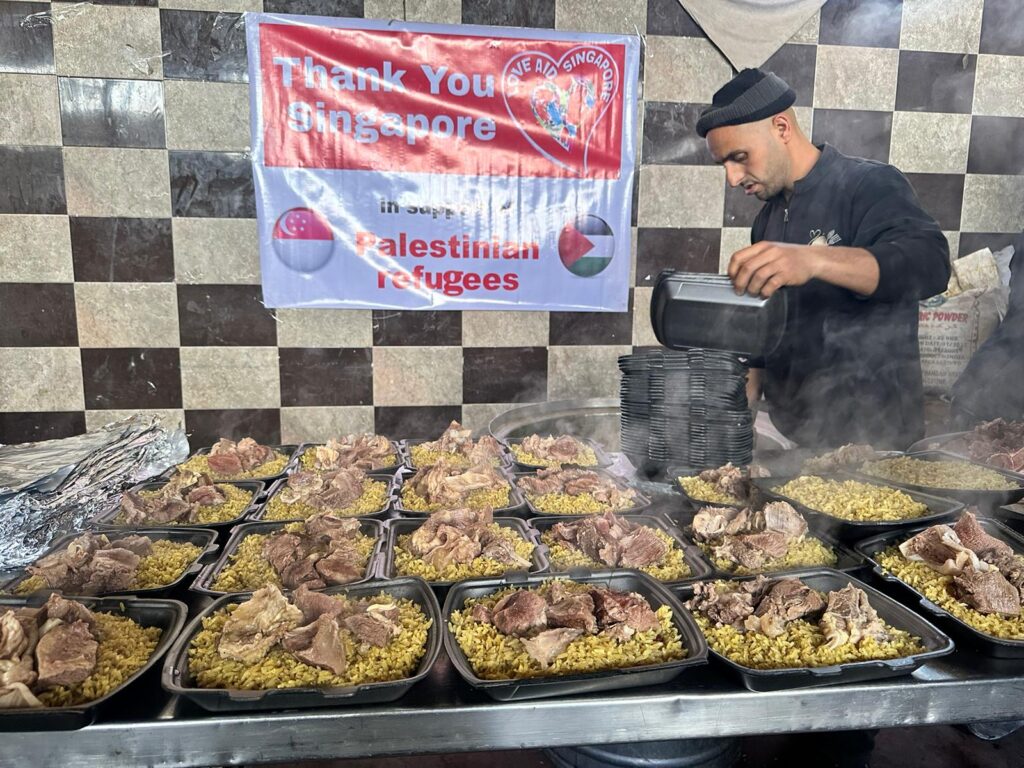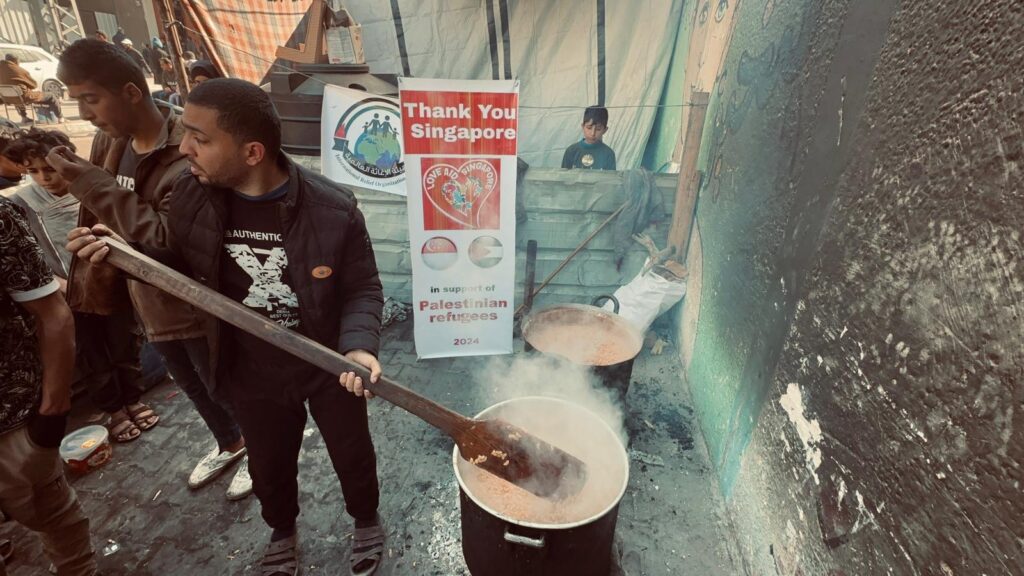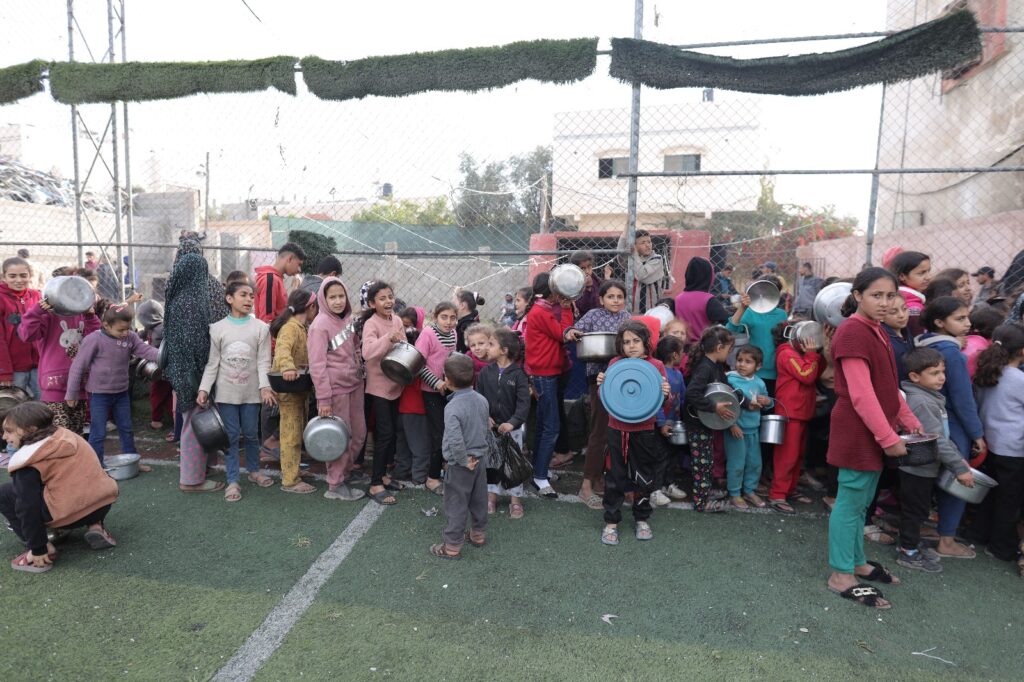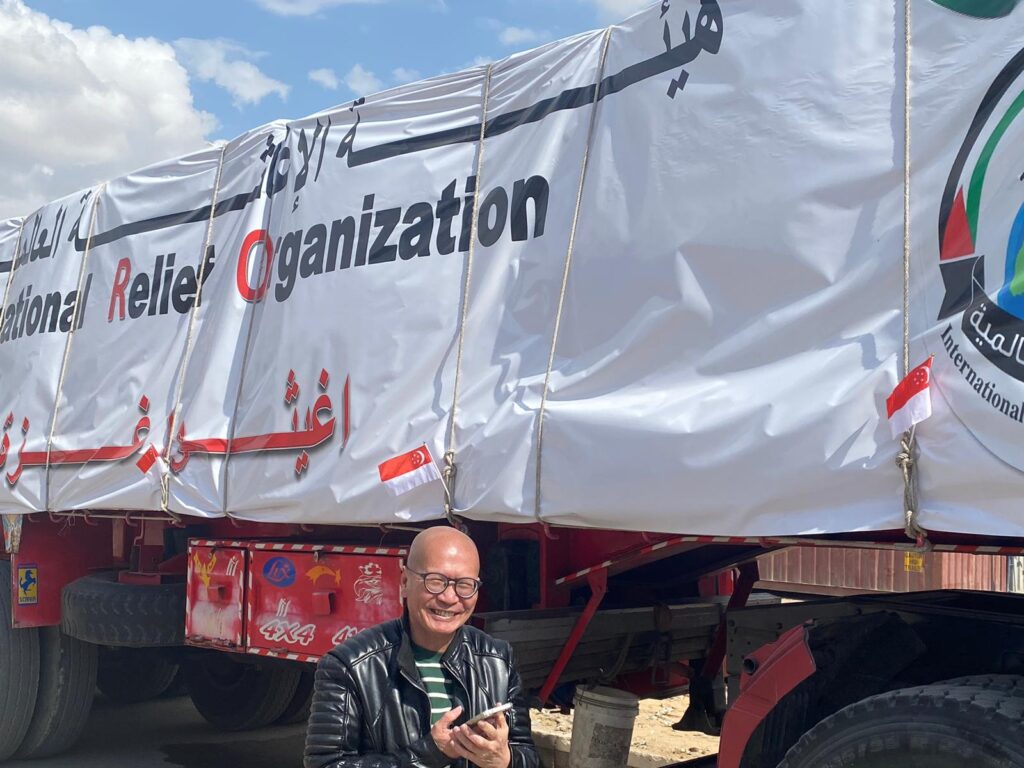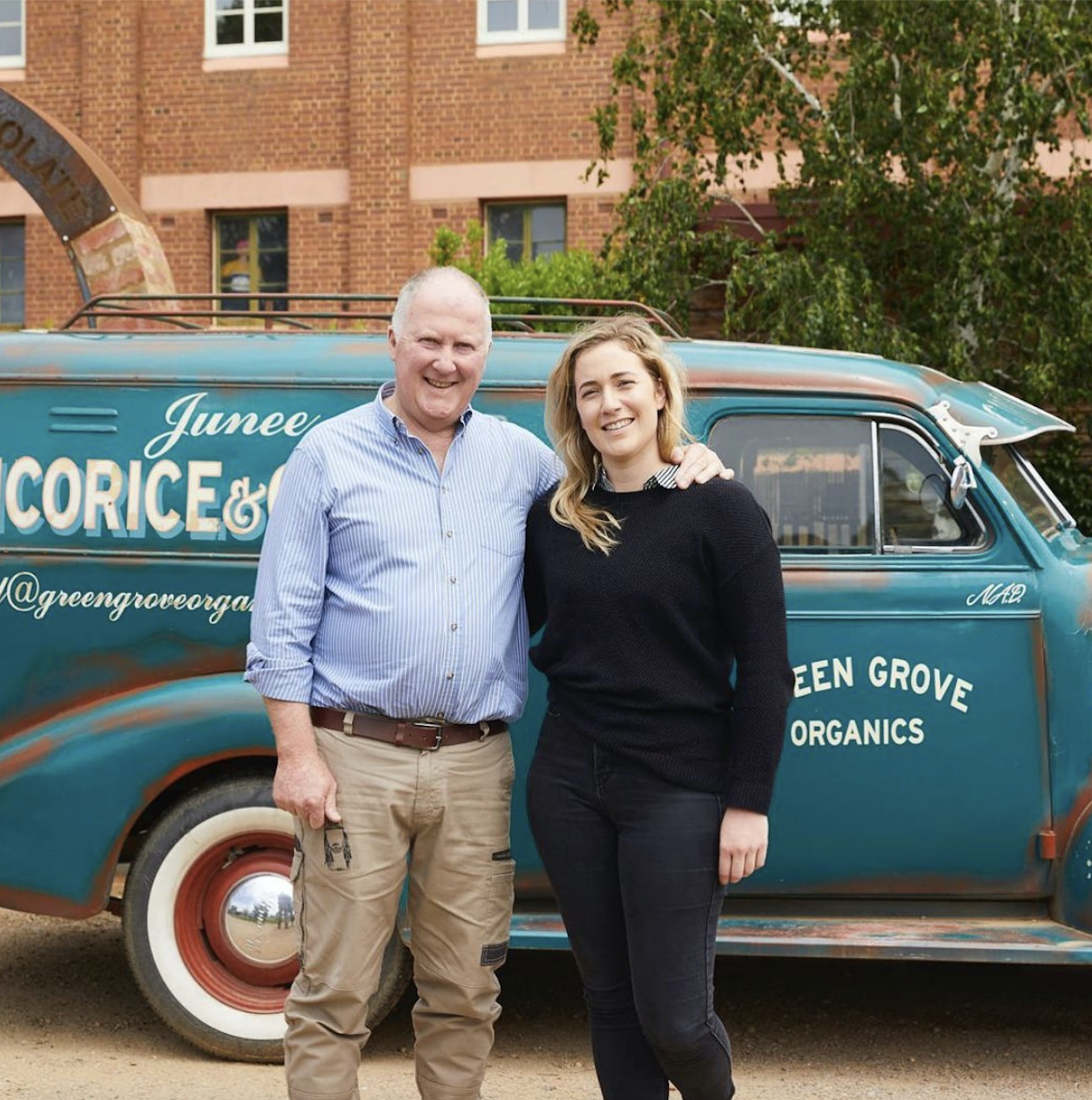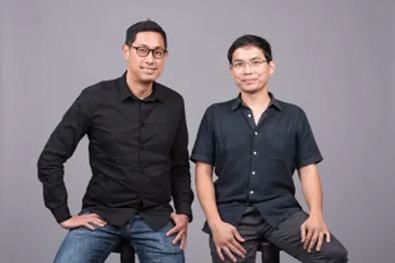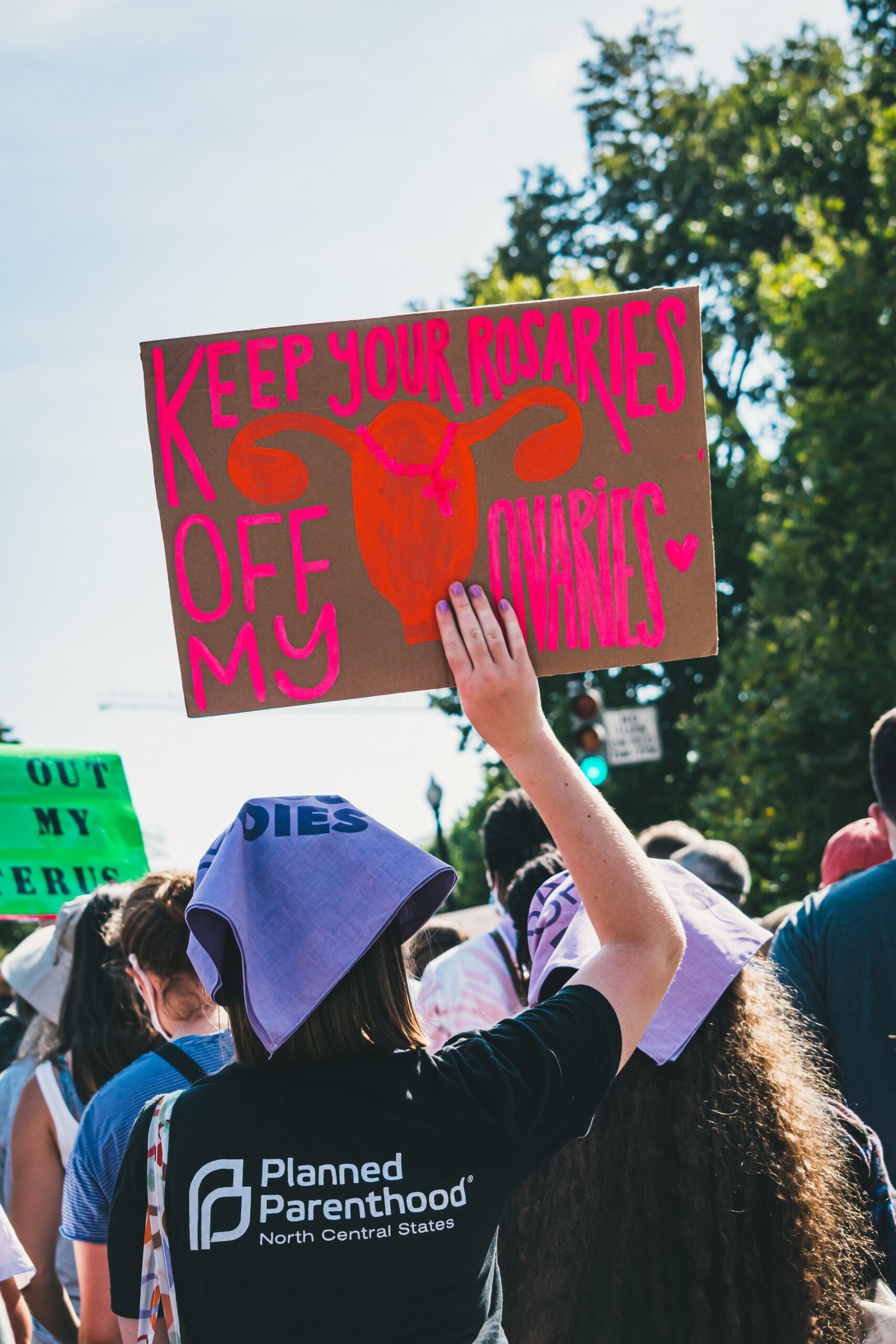Love Aid Singapore
Singapore
By Zu Anjalika Kamis Gunnulfsen Artwork of Glibert Goh by Fai Zainal
I met Gilbert Goh by chance, on his Instagram page, Love Aid Singapore.
A humanitarian from Singapore, Gilbert dedicates his life, offering aid to those in war-torn locations in the Middle-East. A territory not often being of interest to humanitarians from the Far East, given the terrorism slate they have always been associated with.
October 7, 2023 and events that followed that day, however, change the way the world sees the Middle East and on ground, is Singapore’s own, Gilbert Goh, offering a helping hand to the people of Palestine, who have been subjected to unimaginable systemic violence. The violence still continues six months later when this interview took place.
Gilbert is no stranger to humanitarian efforts in the Middle East, having been active in the region for almost a decade.
I had the chance to chat with Gilbert to find out how he started, where he is now, what is in the horizon and also what goes on, on-ground in Cairo, Egypt, a location bordering Palestine, where he is based.
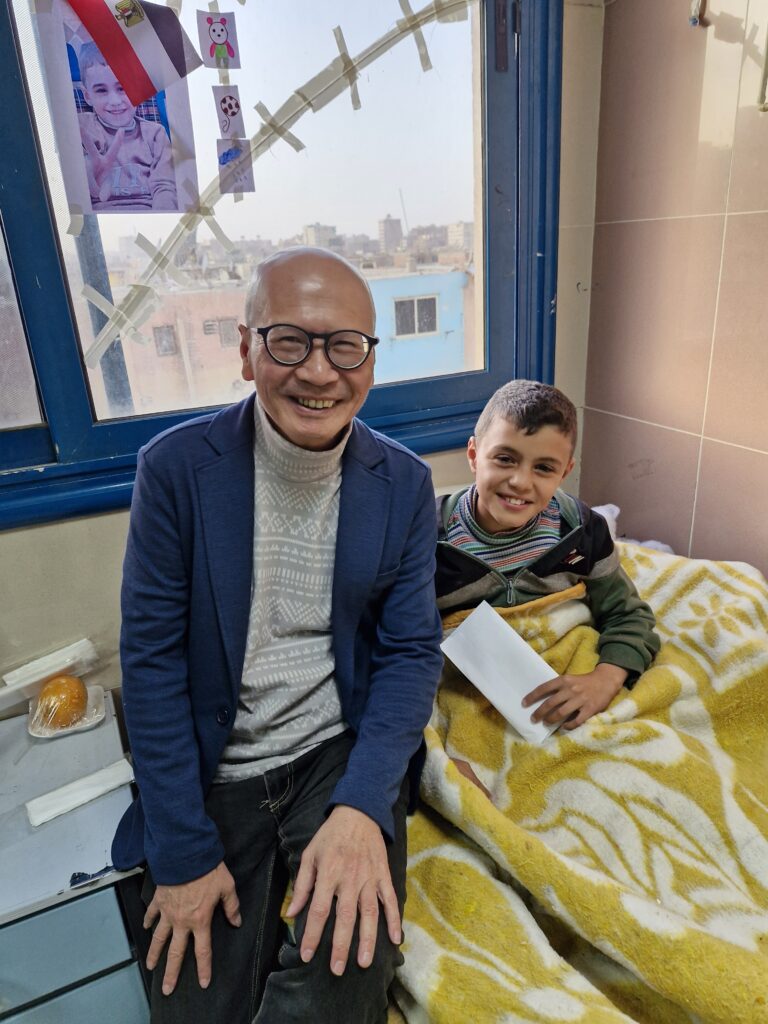
Let’s get to know you a little, Gilbert.
I am 62 years old divorced with a grown-up daughter, who is living in Sydney with my ex-wife.
I live alone for past ten years after my divorce. I have been doing charity work in Singapore, helping those who are homeless and underprivileged. We provide 200 weekly meals to one-room dwellers throughout Singapore, one place at a time.
I am obviously a maverick by nature who tries to go against the grain whenever possible.
I feel Singaporeans are too compliant by nature to do anything out of the ordinary or out of the box, in particular.
How did you first get started on humanitarian work?
We were looking at regional humanitarian work 7 to 8 years ago around the ASEAN region but couldn’t find anything suitable or interesting. The local charity scene was pretty crowded then and being a tiny charity outfit without much funds, we couldn’t really do much so we began to look for fresh challenges abroad.
A chanced invitation to a refugee meeting brought me into contact with humanitarian work in Lebanon and I have never looked back since, making twice yearly trips to the Mediterranean enclave, chalking up close to 10 to 12 trips in total so far helping the Syrian and Palestinian refugees over there.
It was difficult starting up in a very challenging environment, so it took me 2 to 3 years to finally find our foothold in international humanitarian work.
Consistency and persistence finally pays off as the NGOs we worked with saw that we are not those fly-by-night type and we have built very close ties with them over the many years of interaction. We will go as promised even when bombs are raining around us, literally in Lebanon!
You’ve been on ground in Cairo, technically the first few days after the attack on the people of Palestine. Walk us through how the situation has been since that time.
I came over to Cairo from Beirut where I was carrying out my annual winter humanitarian trip. However, a lot of the enquiries were coming in for the situation in Gaza at that time, so I managed to make my way here after getting an NGO contact from a Palestinian friend living in Lebanon.
Things were tense in Cairo, naturally and it got worse when trucks couldn’t get into Gaza easily – the wait can be from 4 to 8 weeks! I saw that aid trucks is not the way to go if we want to do something constructively inside Gaza fast. We explore the food kitchen avenue as they are already operating inside Gaza but because of lack of funds many closed down.
We revived them through monthly injection of fresh funds and right now we have 3 to 4 field kitchens operating inside Gaza, cooking for 3000 to 4000 hungry Palestinians daily.
It’s not cheap though, as it cost us US$50,000, monthly to operate the several food kitchens inside Gaza. We have set aside US$400,000, so they can operate unhindered for at least the next 5 to 6 months.
Unfortunately, the static kitchen at North Gaza was bombed, and we lost 9 Palestinian kitchen workers in the attack. We are still in the midst of reviving this food kitchen at North Gaza but one or two others are still cooking over there, albeit quietly.
There have been discussions online that a couple of NGOs based at the borders have been misappropriating donations that come through. What are your observations on this, Gilbert?
Yes, I heard a bit about it, so we are careful. We try to be transparent and be on ground as much as possible, proving with videos and photos with what we are doing and how we spend the funds.
I think when donors see our videos and photos of the humanitarian work carried out inside Gaza, they feel secure because it is not common for NGOs to post daily on progression and activities.
We are also unregistered, so we are glad people still trust us enough to donate their money to the Palestinian cause. I guess, they saw the work done on the ground and feel safe to donate – to this guy, who is also on the ground a lot.
I think it is difficult to fundraise for a cause and try to do something while you are still at home. I mean, it is still possible, but it will be much more effective to be on ground, in Cairo or inside Gaza itself carrying out the aid work directly.
People can also see the efforts in trying to ensure that the aid work is properly carried out when you are physically there.
This is also why I have to change my flights thrice, when the funds pour in as I feel responsible and it is only right, given that people have trusted me enough with their money, therefore I should also do the necessary and in this instance, by being on the ground as long as possible to ensure that the funds are spent wisely.
I have been away since December 12, so it’s a long time away from home. I have missed Christmas, New Year, Chinese New Year, so there are sacrifices to be made, but I am doing it willingly for the Palestinian cause.
I do miss my laksa and chicken rice though!

When a donation comes through, what are the processes involved, before a hot meal can come onto the table of someone in need?
We don’t discuss how the money gets into Gaza, as it is a long opaque process, and I am also unsure exactly how it is done. It is all handled by the partner NGO. I merely fund the initiatives ensuring certain directions are set, like putting up a joint logo together to reflect the hard work put in by both parties.
I do know it is not easy to bring money from Egypt into Gaza, as all relevant banking systems are being destroyed by the ongoing attack.
It is heart-warming to see fellow Singaporeans rally together to raise funds for the Palestinian cause – business-owners and individuals alike. Did you ever think the contributions will be this overwhelming?
Frankly speaking, no – I only anticipate a 5-day trip initially when I first arrived Cairo in early January. My most sanguine expectation is US$50,000, and I will then leave for Beirut and back home in time for Chinese New Year in February.
We reached US$30,000 on the first day, US$100,000 by the third day and half a million within a month or so. The one-million-dollar mark was probably breached by the second month.
I knew then that we were onto something unprecedented as perhaps this is the first time a Singaporean is setting foot on something significant in the Middle East – a location which was deemed as taboo for many back home when it comes to humanitarian work.
What are the challenges you faced in the many years you have been involved in the humanitarian cause, Gilbert?
I guess many Singaporeans still feel reluctant to set foot into the Middle East for personal reasons, mainly the huge cultural differences and this strong link by the state to a place known for its terrorism-related activities which put off many from daring to venture here.
The language factor is always another huge challenge, as I don’t speak much Arabic and the Arabs also don’t speak much English. So, we communicate using Google translator, mostly – there are lots of miscommunications!
Getting money is also difficult. In Lebanon, there is a banking system but all are broken. You can’t withdraw money from ATMs there and often I have to bring in cold hard cash to spend on our various humanitarian projects.
Singapore banks also do not allow bank transfer to Lebanese banks for obvious reasons, so we depend a lot on third-party money brokers like Western Union to get by, but you can only withdraw a certain amount each time like S$1000 and the commission charge is 2% per withdrawal.
There are other challenges but I personally feel these two are my worst nightmares while carrying out humanitarian work in the Middle East for the past 7 to 8 years.
To survive here, one must be both emotionally and mentally strong to navigate the various innate challenges faced almost on a daily basis and I am alone by myself!
If there is one take-away you can tell us out of this whole 6 months of suffering that has been inflicted on the Palestinians, what will that be?
Personally, I feel that the Palestinian issue has unite the world together against genocidal injustice, committed against one particular group and many people woke-up, especially for those sitting on the fence previously.
I knew about the apartheid regime system when I visited the West Bank many years ago, but couldn’t do much about it as its pretty much accepted by the Western world and even the Arab countries themselves.
Though the huge death toll is appalling, the world now has finally opened it’s eyes and heart to an oppressed and segregated group of people!
Where do you see yourself in 5 years, Gilbert?
I don’t know really, but the immediate plan is to maybe relocate to the Middle East, as I feel I have found my place here.
For those who want to contribute to Love Aid Singapore, how can they do so?
They can contribute through my PayNow 87745281 or DBS Savings account 074-0-009474.
Again I must reiterate that we are NOT a registered entity.

